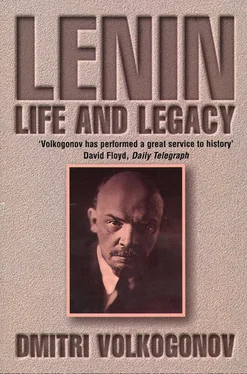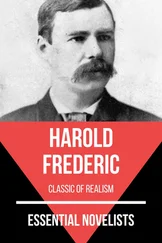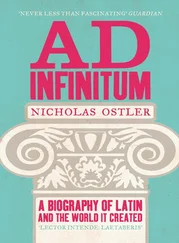There were many others. The relationship between Lenin and Maxim Gorky was a special one. Gorky, who was internationally famous before the revolution, for his play The Lower Depths (1902), his novel The Mother (1906) and his three-part autobiography, gave the Bolsheviks much material help. This did not not prevent him from taking an independent position at critical moments, as the essays he published in 1917–1918 in his own newspaper, Novaya zhizn ’ (New Life), show. 161 Their correspondence was voluminous, and there is hardly one letter from Lenin in which he does not complain about money. Among other things, he asked Gorky to donate some of his royalties to supporting this or that Bolshevik publication, ‘to help drum up subscriptions’, ‘to find a little cash to expand Pravda ’, or nudged him with such hints as, ‘I’m sure you won’t refuse to help Prosveshchenie ’, ‘hasn’t “the merchant” started giving yet?’, or ‘Because of the war, I’m in desperate need of a wage and so I would ask you, if it’s possible and won’t put you out too much, to help speed up the publication of the brochure’. 162 While Gorky helped the Bolsheviks with both money and influence, in November 1917 he could still refer to Lenin darkly as ‘not an omnipotent magician, but a cold-blooded trickster who spares neither the honour nor the lives of the proletariat’. 163
From the little we have so far seen of Lenin’s financial affairs, it is plain that he was not in need, although he was always ready to raise the issue. Biographers have frequently quoted his letter from Zurich to Shlyapnikov in Stockholm in the autumn of 1916, in which he wrote: ‘As for myself, I need a salary. Otherwise we’ll simply perish, I mean it!! The cost of living is diabolical, and we’ve nothing to live on. You’ve got to drag the money by force out of [Gorky] who has two of my brochures (he must pay, now , and a bit more!) … If this doesn’t happen, I swear I won’t make it, and I am really, really serious …’ 164
Perhaps the death of Lenin’s mother in July 1916, which had so shaken him, explains the dramatic tone of this letter. He was, after all, still controlling the Party finances, which, though depleted, were accessible to him. Furthermore, before the war broke out Krupskaya had inherited money from an aunt in Novocherkassk, Lenin’s sisters Anna and Maria were still sending occasional remittances, and even when they returned to Russia in April 1917, Lenin and Krupskaya were not without funds. The fact is, Lenin, whether in Russia or abroad, was never short of money. He could decide whether to live in Bern or Zurich, he could travel to London, Berlin or Paris, visit Gorky on Capri, or write to Anna, ‘I’m on holiday in Nice. It’s sheer luxury here: sunny, warm, dry, the southern sea. In a few days I return to Paris’. 165 Doss-houses and attics were not for him. He wrote to Anna in December 1908 on arriving in Paris, ‘We’ve found a good apartment, fashionable and expensive: 840 francs plus about 60 francs tax, and about the same for the concierge per year. Cheap by Moscow prices (4 rooms, kitchen, larder, water, gas), but it’s expensive here.’ 166
Lenin was punctilious about keeping accounts and planning his budget. He kept notes of what he had spent on food, train fares, mountain holidays and so on, 167 and carried these slips of paper around with him from country to country, city to city, long after their ‘expiry date’, until he finally ensconced himself in the Kremlin, whereupon he handed them over to the Central Party Archive.
He loved dealing with financial matters. In June 1921 he ordered 1878 boxes of valuable objects to be brought into the Kremlin. 168 Perhaps it made him feel more secure. On 15 October of that year the Politburo ordered that no expenditure of the gold reserve was to take place without its – i.e. Lenin’s – authority. 169 He loved holidays in expensive resorts, and he often went to the theatre and cinema. All this was perfectly natural behaviour, especially for the hereditary nobleman Lenin described himself as, 170 and there was no need for him to make a big secret of it. What remains a mystery, however, is not the financial details of his everyday life, but how he, like his comrades Trotsky and Stalin – none of them ever having worked for a living, and none of them having anything in common with the working class – could think they had the right to determine the fate of a great nation, and to carry out their bloody, monstrous experiment.
* For decades the Party archives also concealed evidence that both Marx and Engels fathered illegitimate children – Marx by his housekeeper Elena Denmuth. 101
At the turn of the century, Russia was entering a period of turbulence. Peasants rioted against a system which piled debts on them and taxed their basic necessities excessively; workers went on strike for better conditions and wages and against police harassment; students were demanding autonomy for their universities and civil liberties for everyone; the professional classes – doctors, lawyers, teachers – were becoming increasingly vociferous in their demand for representative government; and the national minorities in the empire’s borderlands were organizing liberation movements. In 1904 the country stumbled into a war against Japan over control of Chinese territory in Manchuria, 6000 miles from European Russia, and by the middle of 1905 Russia’s resources appeared exhausted, and humiliation seemed certain. The whole of 1905 was consumed in strikes and demonstrations, and mutinous action in parts of the army and navy, and by the autumn Tsar Nicholas II was ready to concede reform: the creation of a State Duma, or parliament, and various promises of social legislation.
It was against this background of rising political activity that Lenin emerged from his exile in Siberia and threw himself into reorganizing the Russian Social Democratic Labour Party as a revolutionary body, prepared to overthrow the existing order. To justify the rôle of those who were to do the overthrowing, he created the idea of the ‘professional revolutionary’. In his extended essay What is to be Done? , a title he took from Chernyshevsky, he wrote that an ‘organization of revolutionaries must chiefly and above all include people whose profession is revolutionary activity’, 1 one of his main arguments being that it was ‘far harder to catch a dozen clever people than a hundred fools’. By ‘clever people’ he meant professional revolutionaries. 2 Published in Stuttgart in 1902, 3 What is to be done? was Lenin’s grand plan to create a conspiratorial organization. Advancing the idea of an ‘all-Russian political newspaper’ as the basis for such a party, he envisaged a ‘network of agents’ – or ‘collaborators, if this is a more acceptable term’ – who would provide ‘the greatest certainty of success in the event of a rising’. 4
He would certainly succeed in building his strictly disciplined organization, but after it had seized power he would find it difficult to discern where the Party ended and the security organs began. In April 1922, for instance, it was the Politburo that gave the state security organ, the GPU, the power to shoot bandit elements on the spot. In May they ordered that Patriarch Tikhon, the head of the Orthodox Church, be put on trial for allegedly obstructing the expropriation of Church property, and in the same month this élite of ‘professional revolutionaries’ sentenced eleven priests to be executed for the same reason. In August 1921 it was Lenin who initiated the creation of a commission to maintain surveillance on incoming foreigners, notably those involved in the American famine relief programme. 5
Читать дальше












